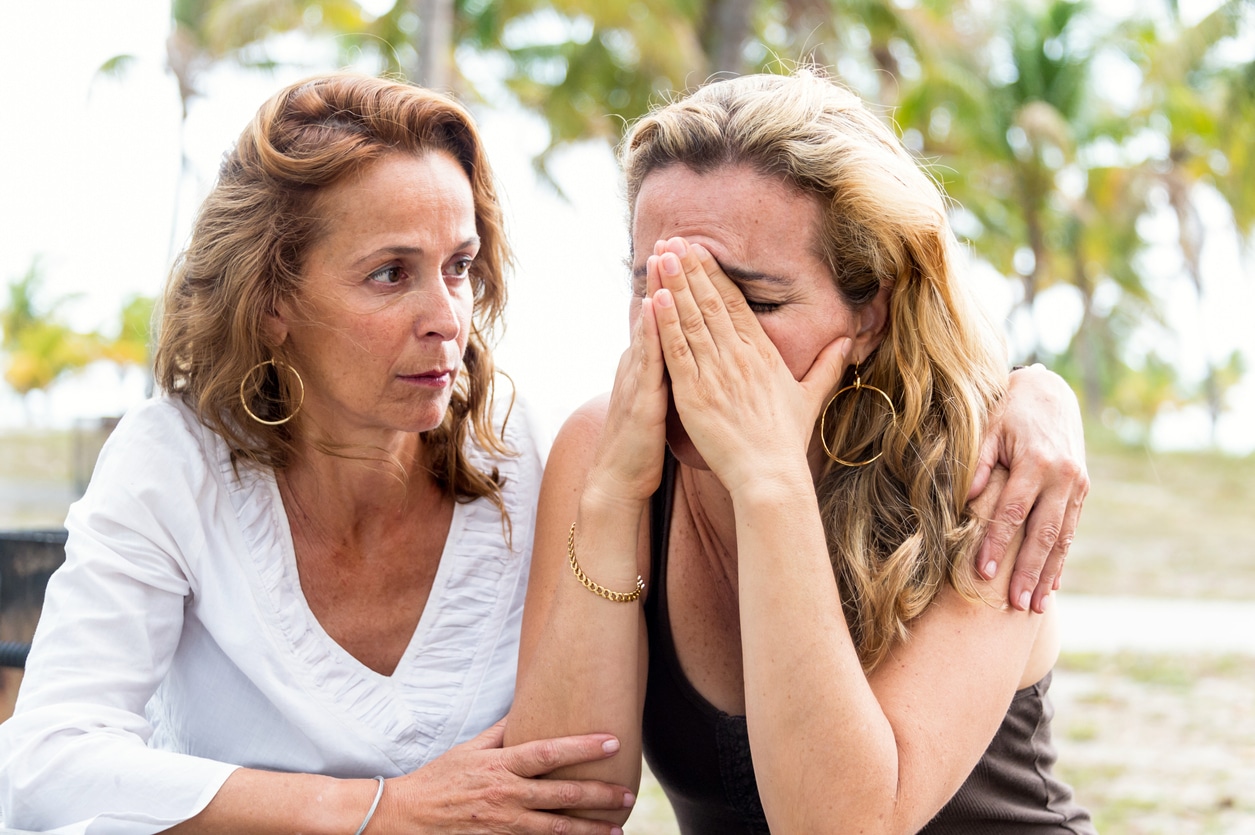Maybe it’s the stage of life I’m in, but lately, it seems like my favorite little black dress is making more appearances at funerals than cocktail parties. Over the past couple of years, I have witnessed dear friends lose parents, children, and spouses. As someone who writes for a living, I never can seem to find the right words during these times, and I find myself fumbling and stumbling to do something, anything, to try and help them heal. I am not alone.
Most people are unsure of what to say or do in the face of grief. This is especially true during the holidays when the overarching theme is family. This time of year can bring about fresh waves of grief for someone who has experienced loss, regardless of whether it was two months or ten years ago. That’s the thing about grief; it has no time limit. It can sneak up on people when they least expect it and overwhelm them with emotions. It can make them feel self-conscious about attending holiday parties and events. And it can stir up feelings of anger or resentment towards families who can still celebrate with each other.
But it can also bring about memories of previous holidays that, although tinged with sadness, offer them some measure of joy and comfort. If you want to help a friend that is grieving this season, you have to be willing to make room for all of these emotions and more. If you aren’t sure where to start, expert-level yoga teacher and life coach Dani Frank offers these five tips for helping a friend who’s grieving during the holidays.
1. Acknowledge the grief.
When faced with a friend who is grieving, it’s common to dance around the topic because you just don’t know what to say. But according to Frank, sometimes not knowing what to say is exactly what you should say.
“Grief is often the elephant in the room,” she describes. “It can be very isolating and make the person grieving feel like they are not ‘seen.’”
Frank recommends acknowledging the grief by saying something like, “I want you to know that I recognize that you are grieving, and I hope you can find some peace.”
“This is a very small gesture that can have a powerful impact,” she says.
2. Accept that the grief does not have a timeline.
You’ve probably heard of the five stages of grief introduced by psychiatrist Elisabeth Kubler-Ross in 1969. In her book On Death and Dying, she suggests that grief is a linear progression that begins with denial before moving to anger, bargaining, depression, and finally, acceptance. If only it were that simple. An article in Psychology Today states that while people may experience one or all of these stages, eventually reaching acceptance, it is not a straight line from stage one to stage five. Grief is very specific to the individual and completely unpredictable.
Frank agrees, explaining that everyone processes grief differently based on many different factors that are unique to his or her situation. There is no right or wrong way, nor is there a timeline. She recommends avoiding cliches like “time heals all wounds” or telling a friend that “it’s time to move on.”
“The best thing you can do is let your friend know that you are there to offer support regardless of how long it’s been or how long it takes,” she says.
3. Create new traditions together.
Family holiday traditions that were once enjoyed may now be a painful reminder of what was lost or what will no longer be. Try helping your friend create new traditions and make new memories. Get together in person or over ZOOM for cookie decorating, have a Christmas pajama party, wear ugly holiday sweaters and go for a walk in the park.
“It doesn’t have to be a grand event,” assures Frank. “The smallest gesture can make a big difference.”
4. Avoid the “How are you doing” question.
It sounds harmless enough, but if a friend is grieving, this question can ring hollow. Why? Because when someone has experienced a profound loss, chances are that they are not doing okay. Frank recommends reframing the question, asking instead, “how are you feeling today?” Not only does this make you sound more sincere, but it also allows your friend to share authentic feelings rather than simply say, “I’m fine.”
“When you ask how someone is feeling, you are meeting the person exactly where he or she is in that moment and acknowledging the present experience,” she explains.
5. Provide a safe space for your friend to talk.
Grief is complex, and in today’s society, where we are told to “be positive,” people who are grieving may not feel comfortable expressing the roller coaster of emotions they are riding. This is especially true during the holidays when everyone is expected to be “merry and bright.” That can cause them to withdraw or isolate themselves for fear of bringing everyone else down. They must have someone to talk to that will listen without trying to cheer them up or fix it. Again, there is no “quick fix” for grief.
“When you provide a safe space for grieving people to talk about their experiences and how they feel, you don’t have to try and make it better,” says Frank. “The only thing you have to do is let them know that you are here and you are listening.”
Conclusion
Navigating grief is one of life’s most uncomfortable processes for both the people experiencing it and the people who care about them. But just because something is difficult or uncomfortable does not mean it should be avoided. Death is a natural part of life, and no one who is grieving should be made to feel like their feelings are “wrong.”
If you have a friend who is grieving this season, following the tips above can not only help the person get through the holidays, but it can also help you deepen the friendship by taking it to a new level of vulnerability. Remember, offering a shoulder or an ear is a selfless act that costs you nothing, but it could be the most valuable gift you can give to your friend in need this season.
Read Next:
Navigating the Stages of Grief After Pet Loss










